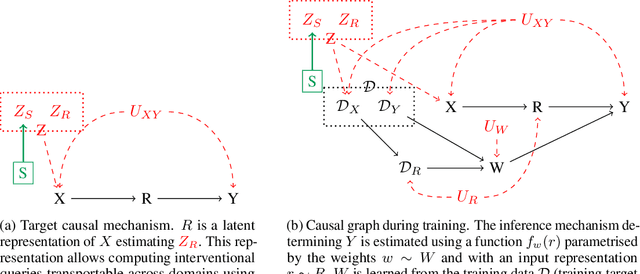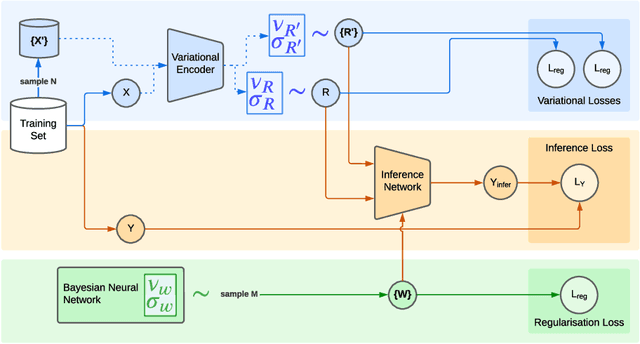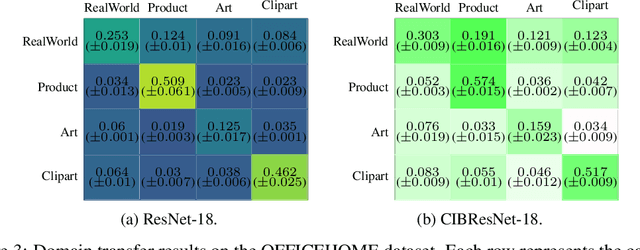Robust Domain Generalisation with Causal Invariant Bayesian Neural Networks
Paper and Code
Oct 08, 2024



Deep neural networks can obtain impressive performance on various tasks under the assumption that their training domain is identical to their target domain. Performance can drop dramatically when this assumption does not hold. One explanation for this discrepancy is the presence of spurious domain-specific correlations in the training data that the network exploits. Causal mechanisms, in the other hand, can be made invariant under distribution changes as they allow disentangling the factors of distribution underlying the data generation. Yet, learning causal mechanisms to improve out-of-distribution generalisation remains an under-explored area. We propose a Bayesian neural architecture that disentangles the learning of the the data distribution from the inference process mechanisms. We show theoretically and experimentally that our model approximates reasoning under causal interventions. We demonstrate the performance of our method, outperforming point estimate-counterparts, on out-of-distribution image recognition tasks where the data distribution acts as strong adversarial confounders.
 Add to Chrome
Add to Chrome Add to Firefox
Add to Firefox Add to Edge
Add to Edge